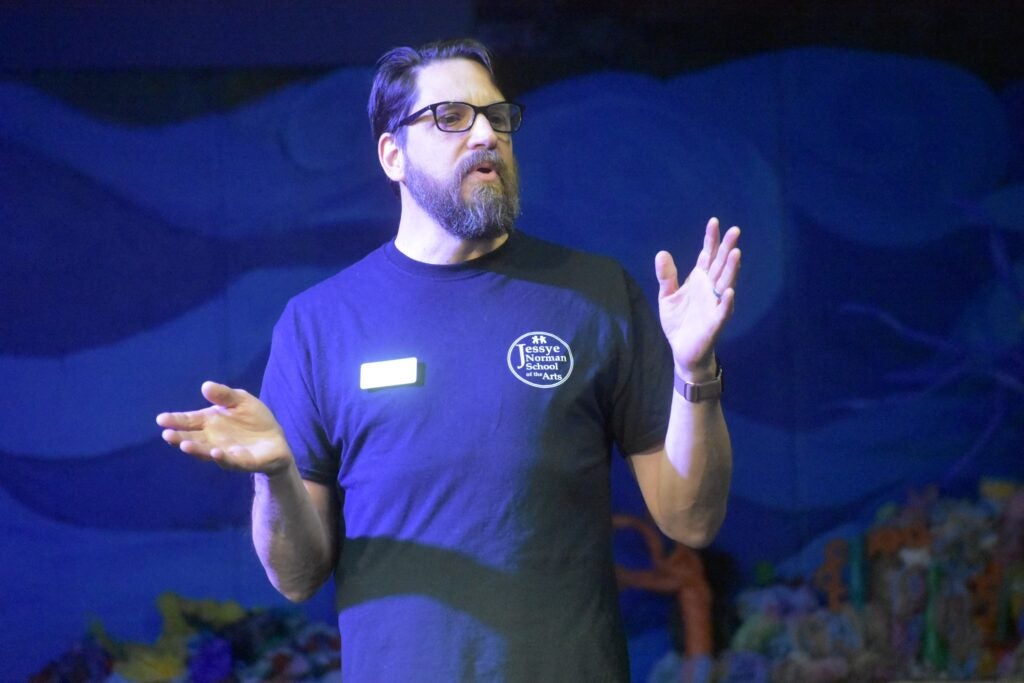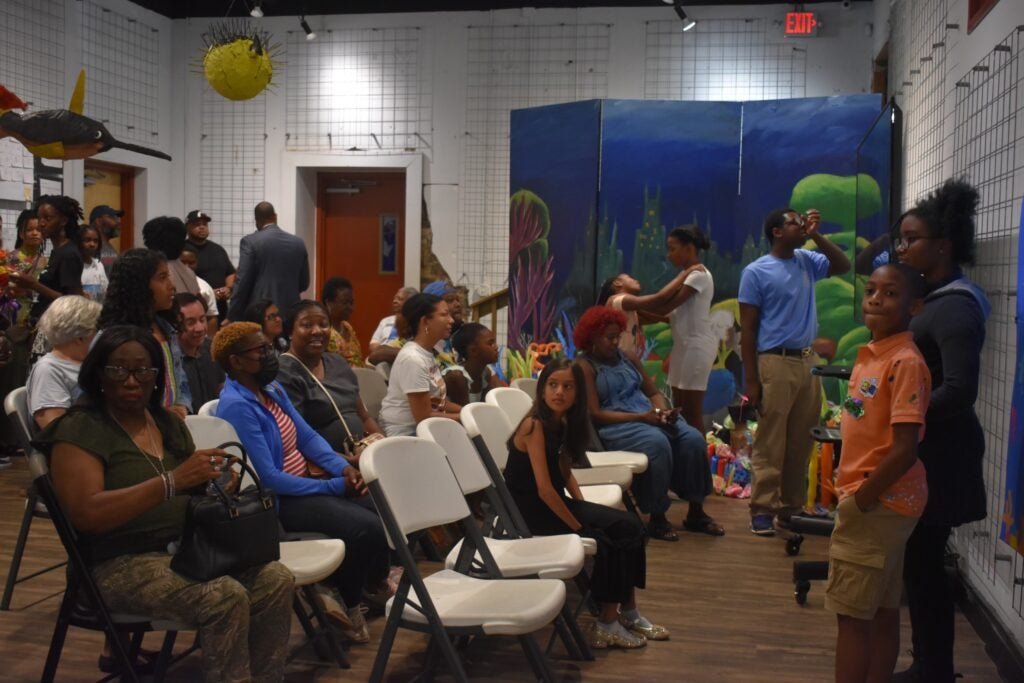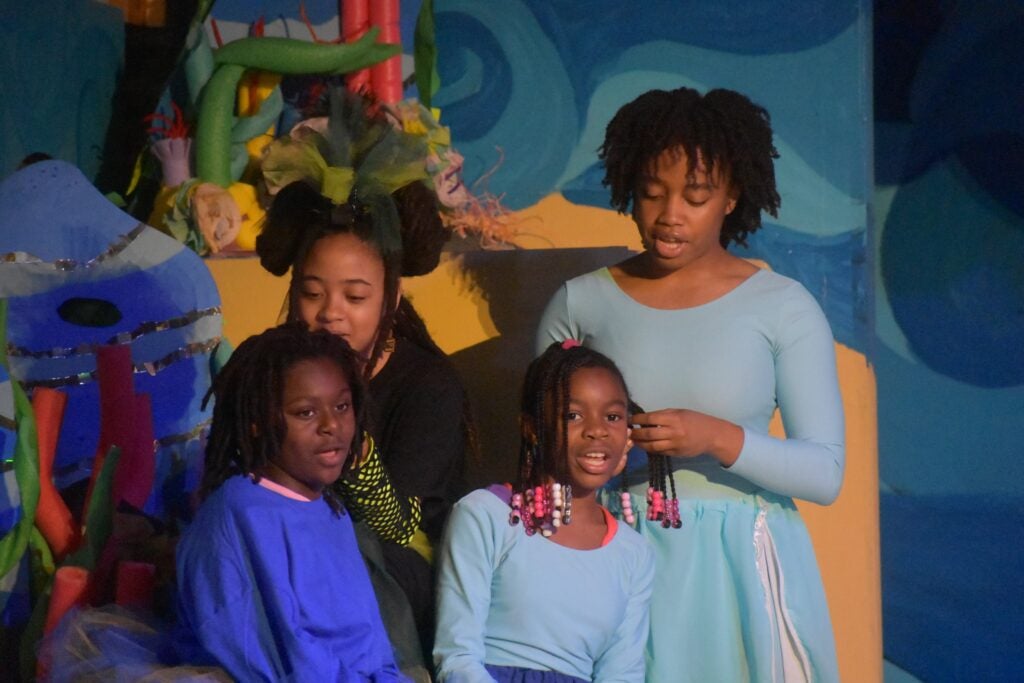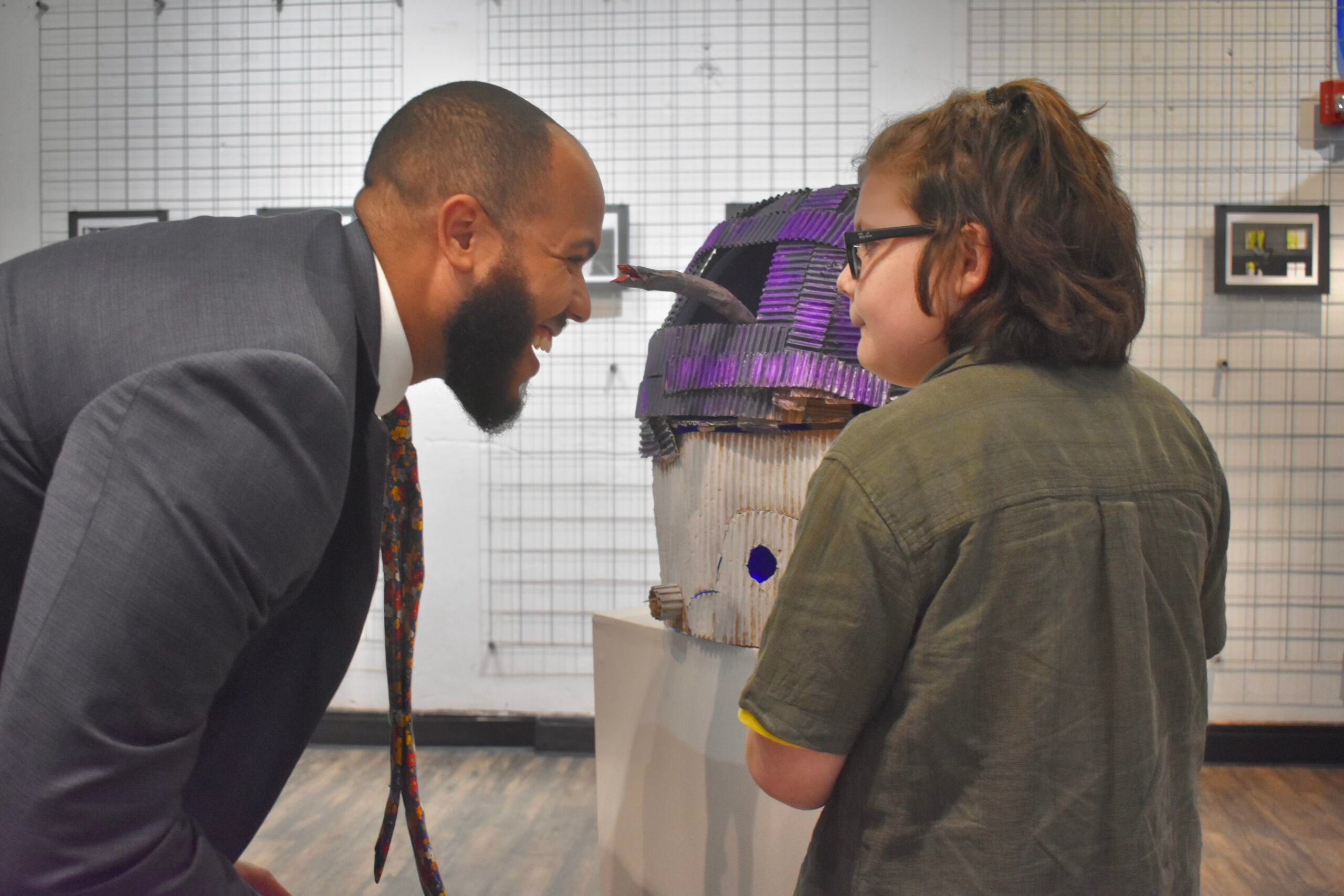On Friday, July 28, District Attorney Jared Williams for the Augusta Judicial Circuit congratulated six minors, aged 12 to 16 years old, on being the first set of graduates to complete a summer Youth Diversion to the Arts program (YDTA) over the course of six weeks.
Created in partnership by the Jessye Norman School of the Arts (JNSA), the Department of Juvenile Justice and the Family Counseling Center of the CSRA, Williams is determined to launch a series of pilot programs that provide an alternative to traditional court proceedings in selected juvenile cases.
Developed in 2022 by a collaboration between Williams and the Greater Augusta Arts Council, YDTA is centered around keeping kids in classrooms and out of courtrooms, and Williams brought in the JNSA to be a primary partner in the cause to incorporate the diversion program into the institution’s existing after-school care structure.
“We started working on a case management basis with family counselors that are in Augusta and it’s been a great experience from the start,” said the JNSA’s Executive Director Gary Dennis. “Our program is a free after school and summer camp program … we brought six folks into this and we’re really proud of them; they’re really amazing kids.”
Connor Thorton, a participating therapist from the Family Counseling Center of the CSRA who has been working with the six participants, said she was really proud of the children graduating, and hoped to see more great efforts arise from Williams’ mission.
“Instead of having to go to court, these children are offered the opportunity to receive counseling services for whatever it is that ultimately got them in trouble in the first place, and to also offer them opportunities to get involved creatively as to express themselves … we also talk about coping skills and ways to avoid future involvement with the Criminal Justice system,” said Thornton. “A lot of the time, the judicial system has significant long term impacts and we see multiple run-ins with the judicial system once you’re involved the first time.”

Working day-in and day-out with children in the juvenile system, Thornton said she often sees a large need for additional social-emotional learning skills, and a lack of development in how to healthily communicate and process one’s feelings as well as understand others’ emotional states.
According to reports by the Council for a Strong America’s Fight Crime: Invest in Kids, an organization made up of thousands of police chiefs, sheriffs, prosecutors and violence survivors devoted to protecting public safety by promoting solutions that steer children away from crime, high quality after-school programming is critical to decreasing juvenile crime and victimization, and to putting children on the right track for success later in life.
“[We] know after school is one of the most effective ways to improve public safety for their communities and our country,” said a report from Fight Crime: Invest in Kids.
Inspired by similar programs in Detroit, South Carolina, Wyoming and many other areas, some of which have reported a 35 percent reduction in total arrests and a 50 percent decrease in violent-crime arrests, Williams believes alternative efforts to the juvenile system are an important solution to making Augusta safer.
“What we’ve seen is that there are challenges, but all of them are outweighed by the benefit that we can have when we really change lives,” said Williams. “It’s one thing to try and get convictions, but if someone keeps coming back to the court system we haven’t really succeeded in our mission … in particular with our juvenile court kids, we want to try to keep them out of the court system as best we can.”
Having the six graduates participate in two three-week camps at the JNSA, the YDTA students took part in a musical and a gallery exhibit alongside peers at each camp’s conclusion.
“This program allows kids to never have to meet a prosecutor, to never have to meet a defense attorney, never see a judge and go straight into the services that they need so that they can get on the right path,” said Williams.

Williams also said well established, after school programs will be a major help in this long term goal, because studies have found that youth are at more risk of getting into trouble with the law between 2 and 6 p.m. when parents might still be at work, and are not able to have direct supervision of minors. From these first summer graduates, Williams said he has a lot of hope for similar programs.
“Since being in the program, these kids have not reoffended and have stayed on the right side of the law,” he said. “We haven’t seen them through that revolving door, which is unfortunately all too common, and we just get better results … if we can keep kids busy during those hours, we can prevent victims from being created, and we can prevent the entanglement of our youth into the system.”
Dennis said his biggest hope for the program is showing the community why the YDTA program is so necessary in Augusta, and to gain more support in the hopes of expanding such an effort in more local places in the near future.
“If they’re spending six weeks here, eight hours a day, in a program led by degreed professionals and caring adults, those are eight hours a day for six weeks, during the summer, they’re avoiding negative outcomes,” said Dennis. “It’s time where they’re supervised. It’s time where they’re working productively. It’s time where they’re learning new things, and they’re not just learning the skills of arts that we teach – drama, dance, visual and digital art – but they’re also learning positive human interactions.”
While many typically think of sports as a popular source for channeling troubled children’s time and energy, Dennis said he believes imparting any skill onto students, whether that is in art or sports, adds value to the world. Dennis added how many adults and children will prevent themselves from mastering something initially difficult, because of a lack of honed persistence and determination and this can also be seen in their studies.
“It’s the same with math, and it’s the same with science; a little bit of effort, a little bit of persistence and by the end of it you’ve gone from ‘I can’t do that’ to ‘I just did that,’” he said. “And that achievement builds confidence, and adding that confidence gives them a world of possibilities that they maybe didn’t think they had before.”

As community members, peers and fellow parents browsed the art gallery and viewed the school’s performance of “Finding Nemo,” Williams said he hopes people takeaway how students from the YDTA are no different from any other child.
“When you ignite a passion in a young person and give them something they can work towards, something that they care about, it provides them the outlet that so many kids that we see come from the system don’t have,” he said. “Kids belong in classrooms, not courtrooms, but if we don’t have the services and the apparatus to make that happen, then we’re not going to be able to divert cases to where they need to go.”
Hoping to get more funding and develop more partnerships with local nonprofits and businesses, Williams said he is hoping to quickly expand the program to meet the high community demand for those in the juvenile system.
“We’re hoping that this is the first of many different outlets and avenues for our kids. We really want this to be the first of many programs … and what that looks like is not every kid wants to do art, not every kid is interested in that, so what about sports? What about golf?” he said. “But also just finding the different ways to get kids involved, active, engaged, loved, cared for and taught the things that many kids have the privilege of learning at home, but not every kid does.”
Williams said these first efforts would not have been possible without the help of the JNSA, and he was grateful for their work in changing lives and actively making Augusta a safer place by giving all kinds of kids from all different backgrounds the same opportunities for growth.
“Kids are not giving you a hard time, they are having a hard time,” she said.
Following their graduation from the anonymous program to protect participants’ privacy, the six graduates will be offered the option to have additional free counseling with Thornton, as well as more opportunities with the JNSA to develop more artistic skills.








